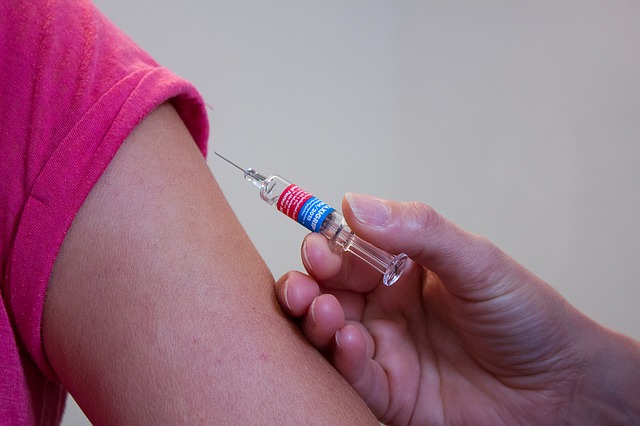Immunization plays an important role to control infection. Traditionally childhood vaccination focuses on prevention of common infectious diseases occurs in the early stage of life. However, still antenatal, postpartum, and neonatal death due to infectious disease attack is a global issue. It is well known that maternally-acquired antibodies have a protecting role against many infections during the first month of the infant's life. Therefore, maternal vaccination is one of the important clinical strategies to protect infectious diseases from both mother and fetus by boosting immunity power.

Infants are unable to protect themselves from infectious diseases due to their immature immune system, which relatively increases the risk of infectious diseases. Maternal vaccination schedule gets global attention to reduce the rate of both postpartum maternal mortality and infants died during their first-year life. It is necessary to mention that all vaccines are not safe during maternity. Some inactivated vaccines usually inject during the gestational period, which is not causing any harm to both mother and fetus. These are as follows:
Tetanus toxoid vaccination
This vaccine gives protection against Clostridium tetani bacterium, which enters through an open wound and affects the neurological system. Neonatal tetanus is common because of infectious agent enters through unhealed umbilical stump, when it cut with a non-sterile instrument. Tetanus toxoids (TT) vaccine is safe to use. World Health Organization (WHO) recommended the first dose of TT should be administered immediately after the pregnancy detected which is followed by the administration of the second dose of TT after four weeks. If the women have completed these two doses of TT at her first pregnancy, then she needs to take only one dose of TT in case of subsequent pregnancy occurs within the next three years. However, WHO also recommended that the third dose of TT requires to administer six months after the second dose to get protection for five years. This schedule of TT protects infants from Tetanus infection for a few months after the childbirth. Tetanus toxoid also has a role to prevent premature delivery.
Hepatitis B vaccine
Hepatitis B infection causes liver inflammation and leads to serious disease outcome including death. The scope of vertical transmission of this infectious disease from mother to fetus is high and cause the life-threatening condition to infants in the latter half of life. Hepatitis B infected mother also has a serious risk of morbidity and chance to increase preterm delivery. Hepatitis B vaccine recommended for pregnant women who have a higher risk to develop this infection. Hepatitis B vaccine contains an inactivated, noninfectious Hepatitis B surface antigen particles and does not cause risk or adverse effect on pregnancy outcome. This vaccination is typically recommended for women who have HBsAg-positive result.
Influenza vaccine
During pregnancy, influenza attack leads to severe illness and increase the risk of hospitalization due to the deteriorating condition of lungs and heart. Influenza infection increases the preterm delivery and causes serious health issue to an unborn baby. Routine inactivated influenza vaccination is recommended during influenza season at any term of pregnancy. This vaccine is safe to use during pregnancy and also prevent influenza-related morbidity and mortality during pregnancy.
Hepatitis A vaccine
Hepatitis A vaccine is composed of inactivated virus and therefore, theoretically, it is safe to use during pregnancy. But this vaccine is usually recommended to the pregnant women who have exposed to hepatitis A infection or have a higher risk to develop this condition due to the consumption of contaminated food.
The Centre for Disease Control and Prevention recommended immunization is as follows:
| Population | Vaccine | Type of vaccine |
|
All pregnant women |
Influenza | Inactivated |
| Tetanus
Diphtheria Pertussis |
Toxoid and inactivated |
|
|
Pregnant women at risk |
Hepatitis A | Inactivated |
| Hepatitis B | Inactivated | |
| Pneumococcal | Inactivated | |
| Meningococcal | Inactivated | |
| Human Papilloma Virus | Inactivated | |
| Tetanus and Diphtheria | Toxoid | |
|
Postpartum |
Measles Mumps &Rubella |
Live |
| Varicella |



